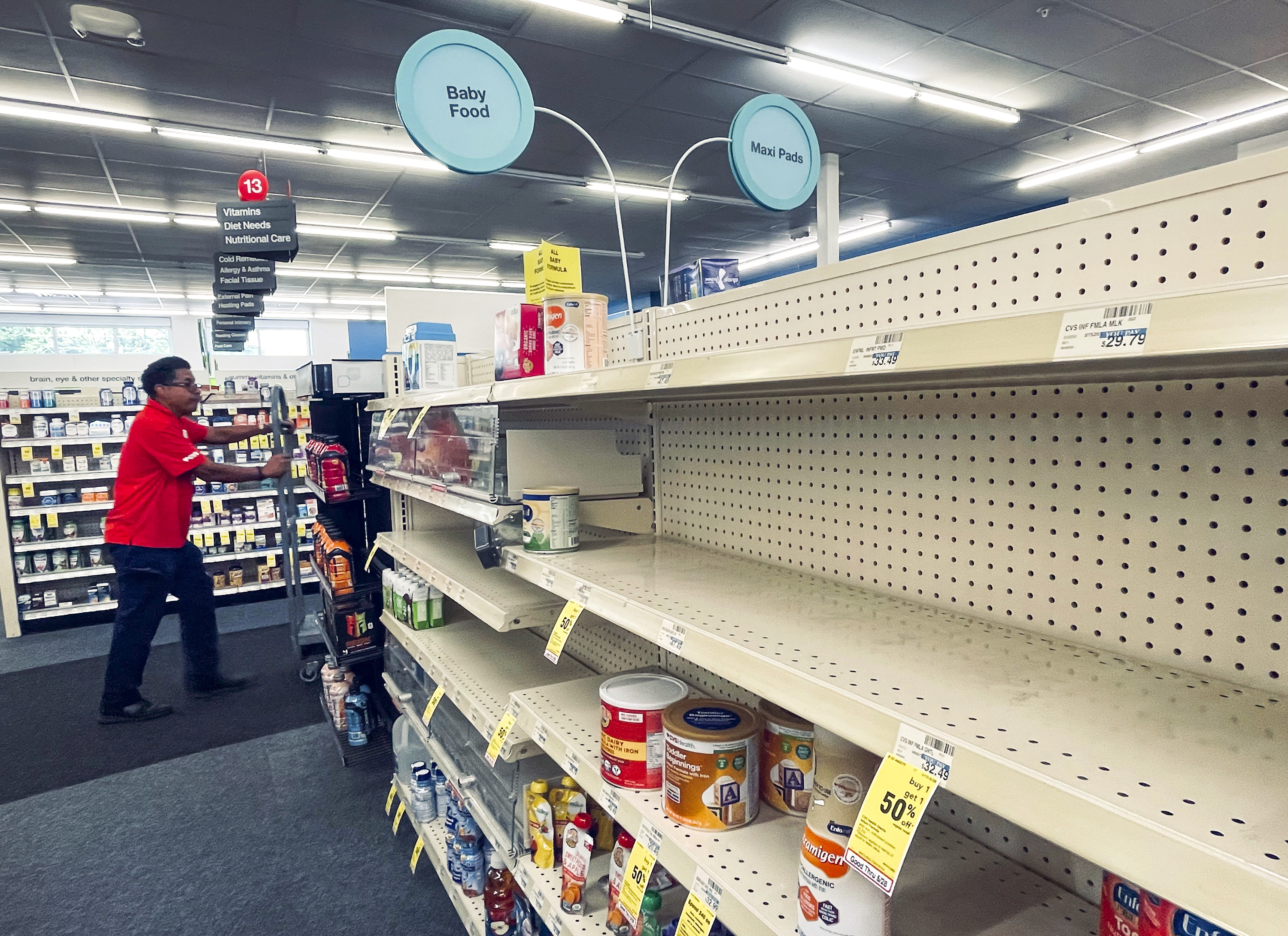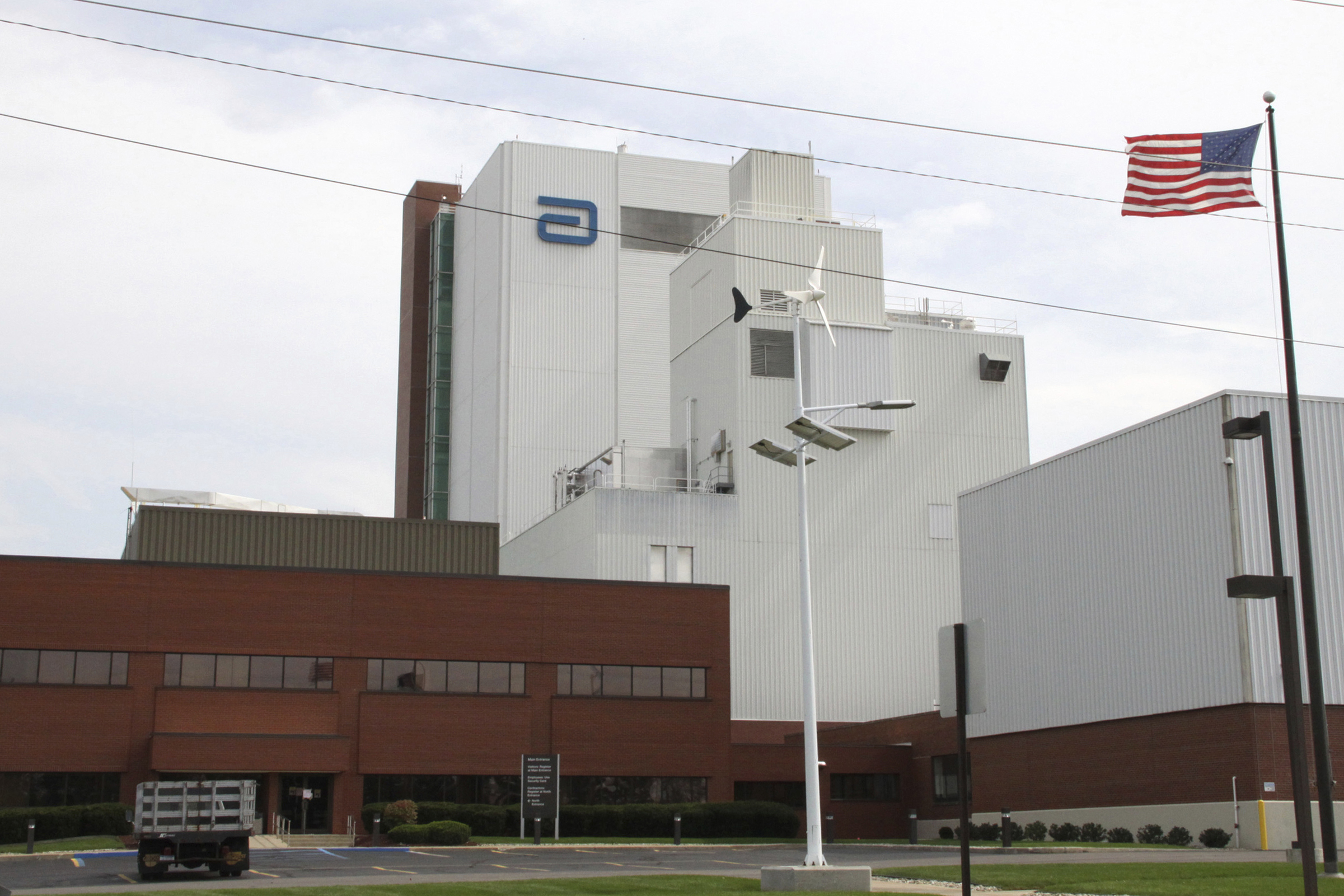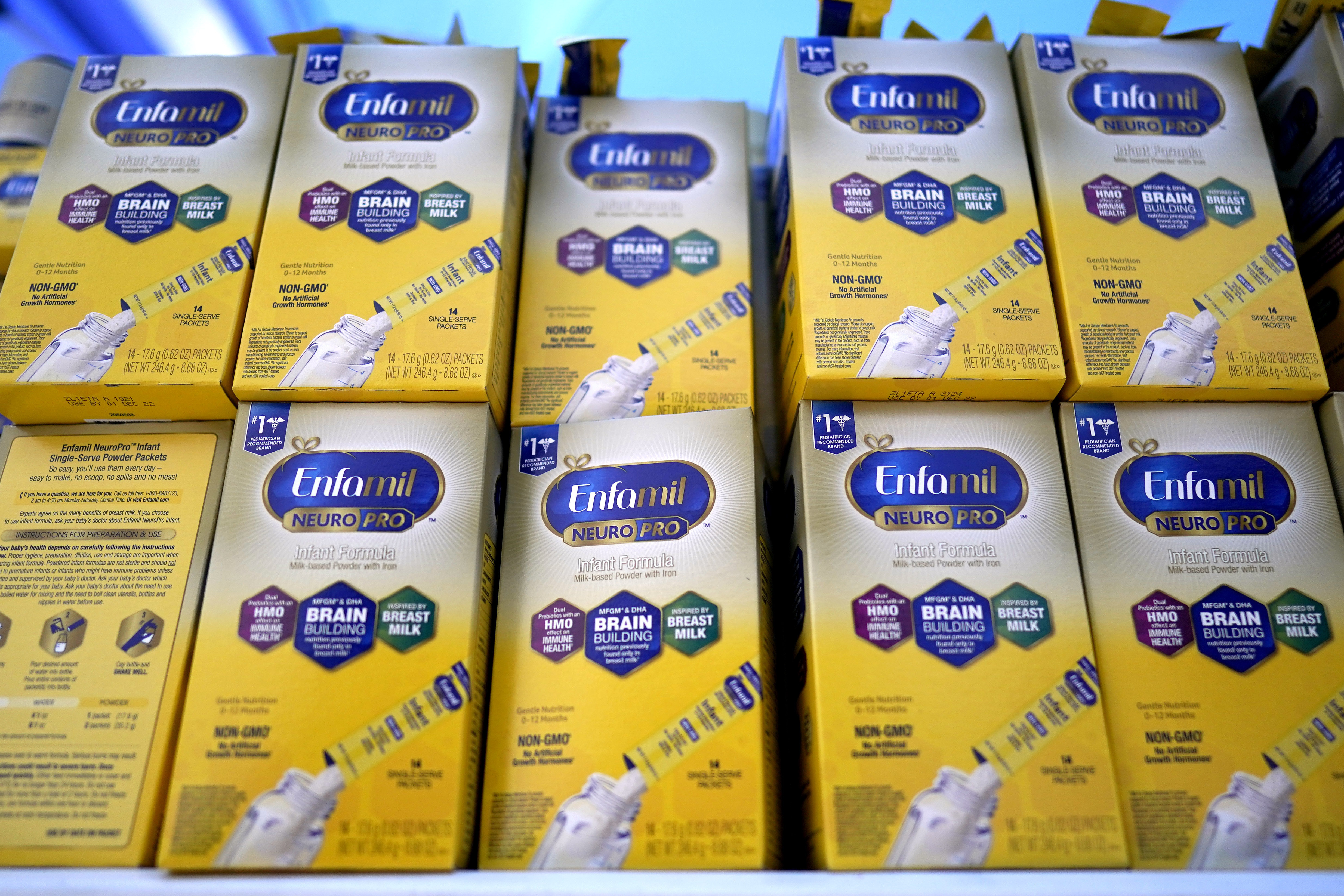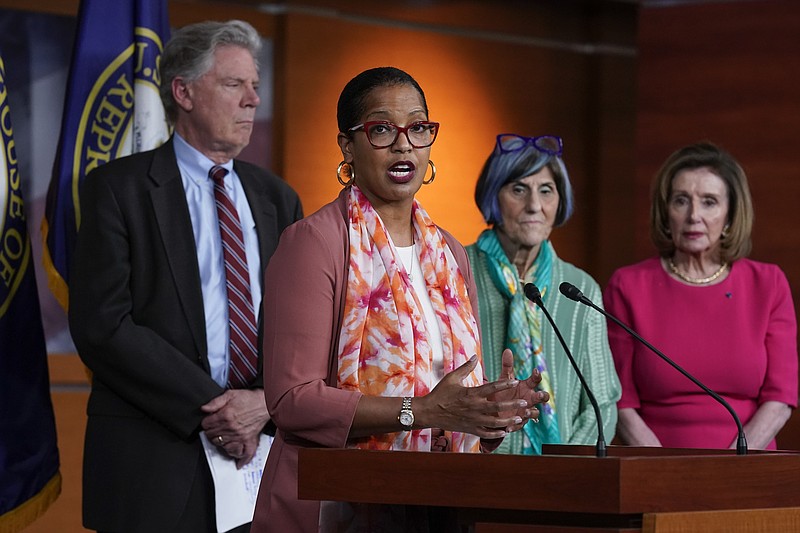WASHINGTON -- The head of the Food and Drug Administration told lawmakers Thursday that a shuttered baby formula factory could be up and running as soon as next week, though he sidestepped questions about whether his agency should have intervened earlier to address problems at the plant that triggered the national shortage.
FDA Commissioner Dr. Robert Califf faced a bipartisan grilling from House lawmakers over the baby formula issue that has angered American parents and become a political liability for President Joe Biden.
The problems are largely tied to Abbott Nutrition's Michigan formula plant, the largest in the U.S., which has been closed since February due to contamination problems. The FDA announced a preliminary agreement with Abbott earlier this week to restart production, pending safety upgrades and certifications.
"We had to wrestle this to ground with Abbott," Califf told members of a House subcommittee. "I think we are on track to get it open within the next week to two weeks."
After production resumes, Abbott has said, it could take about two months before new formula begins arriving in stores. Califf said it will be "a few weeks" before supplies returns to normal levels, especially in rural areas.
When lawmakers asked why it took the FDA months to investigate a whistleblower complaint about safety violations at Abbott's plant, Califf said he couldn't share details due to the agency's ongoing investigation. Several lawmakers rejected that response.
"It's not acceptable to say you just can't comment on it," said Rep. Mark Pocan, D-Wis. "This is a problem I've seen over and over with the FDA: You guys aren't good at communicating."
Califf is the first administration official to testify before Congress on the shortage, which has left some parents hunting for formula and become a political talking point for Republicans. On Wednesday evening Biden announced sweeping new steps to improve U.S. supplies, including invoking the Defense Production Act and flying in imported formula from overseas.
Rep. Rosa DeLauro, D-Conn., repeatedly asked Califf to explain what the FDA did after receiving a whistleblower complaint in October alleging numerous safety violations at Abbott's plant, including employees falsifying records and failing to properly test formula before releasing it. The former Abbott employee wasn't interviewed by the FDA until late December and the plant wasn't closed until mid-February, she noted.
"It all begs the question, why did the FDA not spring into action?" DeLauro asked. "Who in the leadership had access to that report -- who didn't have access to the report -- and why was there no reaction?"
Califf said he had reviewed the complaint but didn't specify when or what immediate steps were taken.
"I am committed to getting back to you on specifics of what happened, I'm just not prepared to today," Califf said.
One point on which lawmakers and Califf agreed is that the concentrated nature of the U.S. formula market makes it highly vulnerable to disruption. Just four companies produce an estimated 90% of U.S. formula, including Abbott, Gerber, Perrigo and Reckitt. Those companies also dominate federal contracts that provide about half of all U.S. formula through a program called WIC, for low-income mothers, children and babies.
Abbott shut its Michigan plant in February after FDA inspectors began investigating four bacterial infections in infants who had consumed formula from the plant. The first of those cases was reported to the FDA in September, but agency staff didn't begin inspecting the facility until late January.
Califf said earlier this week the agency's investigation is ongoing and it hasn't yet reached a conclusion on whether bacteria from the plant caused the infant infections. Abbott has said there is no direct evidence linking its products to the illnesses.
Thursday's hearing was scheduled to review the FDA's budget request for next year, and Califf asked lawmakers for $76 million in new funding for food safety and nutrition.
"I was very well aware coming in that we need to do major improvements on the food side of the FDA -- not because the people are bad -- but there is a need for consistent leadership and the right resources," Califf told lawmakers.
BILLS ADDRESS SHORTAGE
On Wednesday, the Democratic-led House approved two bills addressing the baby formula shortage as lawmakers look to show progress on what has become a frightening development for many families.
One bill with wide bipartisan support passed by a vote of 414-9. It would give the secretary of the Agriculture Department the ability to issue a narrow set of waivers in the event of a supply disruption. The goal is to give participants in an assistance program commonly known as WIC the ability to use vouchers to purchase formula from any producer rather than be limited to one brand that may be unavailable. The WIC program accounts for about half of infant formula sales in the U.S.
The other measure, a $28 million emergency spending bill to boost resources at the Food and Drug Administration, passed by a mostly party-line vote of 231-192, and it's unclear whether the Senate will go along.
"This bill just continues the Democrats' strategy of throwing money at the same bureaucrats who caused the crisis and who have not made its solution a priority," said Rep. Andy Harris, R-Md.
Rep. Rosa DeLauro, the Democratic chair of the House Appropriations Committee, said the money would increase FDA staffing to boost inspections of domestic and international suppliers, prevent fraudulent products from getting onto store shelves and acquire better data on the marketplace.
"It is essential that we ensure the federal government has the resources it needs to get baby formula back on the shelves," said House Speaker Nancy Pelosi, D-Calif.
Information for this article was contributed by Zeke Miller and Kevin Freking of The Associated Press.
 An employee walks near empty shelves where baby formula would normally be located at a CVS in New Orleans on Monday, May 16, 2022. President Joe Biden's administration has announced new steps to ease the national shortage of baby formula, including allowing more imports from overseas. (Chris Granger/The Times-Picayune/The New Orleans Advocate via AP)
An employee walks near empty shelves where baby formula would normally be located at a CVS in New Orleans on Monday, May 16, 2022. President Joe Biden's administration has announced new steps to ease the national shortage of baby formula, including allowing more imports from overseas. (Chris Granger/The Times-Picayune/The New Orleans Advocate via AP) FILE - An Abbott Laboratories manufacturing plant is shown in Sturgis, Mich., on Sept. 23, 2010. In mid-February 2022, Abbott announced it was recalling various lots of three powdered infant formulas from the plant, after federal officials began investigating rare bacterial infections in four babies who got the product. Two of the infants died. But it's not certain the bacteria came from the plant; strains found at the plant didn't match the two available samples from the babies. (Brandon Watson/Sturgis Journal via AP, File)
FILE - An Abbott Laboratories manufacturing plant is shown in Sturgis, Mich., on Sept. 23, 2010. In mid-February 2022, Abbott announced it was recalling various lots of three powdered infant formulas from the plant, after federal officials began investigating rare bacterial infections in four babies who got the product. Two of the infants died. But it's not certain the bacteria came from the plant; strains found at the plant didn't match the two available samples from the babies. (Brandon Watson/Sturgis Journal via AP, File) FILE - Infant formula is stacked on a table during a baby formula drive to help with the shortage May 14, 2022, in Houston. President Joe Biden has invoked the Defense Production Act to speed production of infant formula and has authorized flights to import supply from overseas. (AP Photo/David J. Phillip, File)
FILE - Infant formula is stacked on a table during a baby formula drive to help with the shortage May 14, 2022, in Houston. President Joe Biden has invoked the Defense Production Act to speed production of infant formula and has authorized flights to import supply from overseas. (AP Photo/David J. Phillip, File)